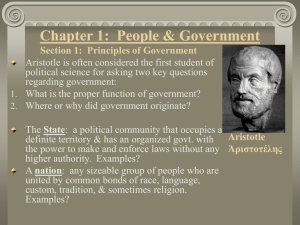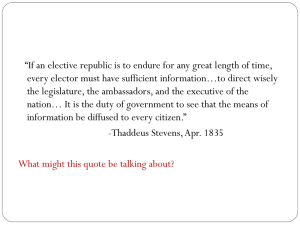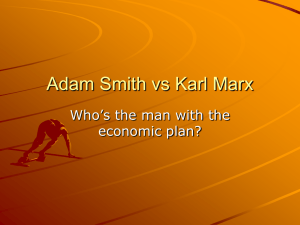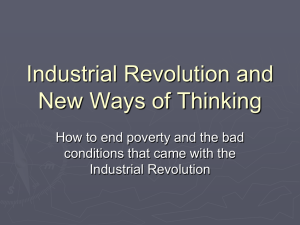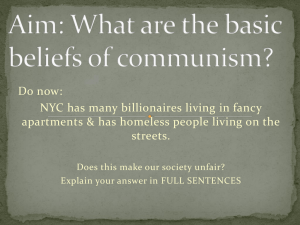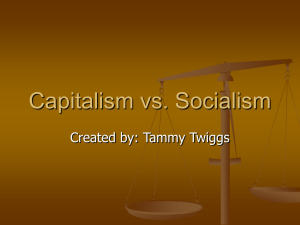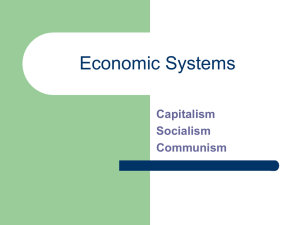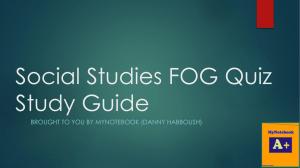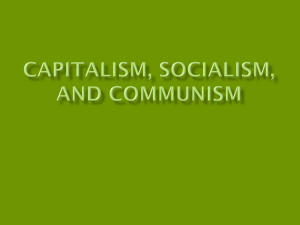PPT
advertisement
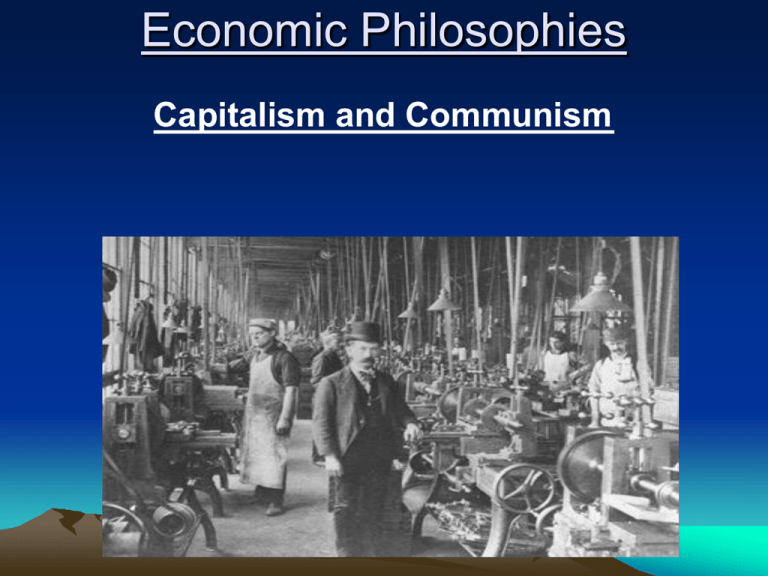
Economic Philosophies Capitalism and Communism What is Capitalism? A)“..An economic system in which money is invested in business ventures with the goal of making a profit” • B) Role of market competition and entrepreneurial abilities • C)Principles of laissez faire “let people do as they please” Capitalism and its Impacts A)• The Wealth of Nations Adam Smithdefended free economy, claimed that government need not interfere in the economy. B)• Role of market competition and entrepreneurial abilities Adam Smith – Wealth of Nations C)• Impact on standard of living and the growth of the middle class D)• Dissatisfaction with poor working conditions and the unequal distribution of wealth in society • Stereotype of the Factory Owner • What were some theories opposed to capitalism? • Tocqueville – French Philosopher • Consider what is happening among the working classes. Do you not see spreading among them……. Ideas not only to overturn gov’t, but society itself? starter activity ‘The Silent Highwayman’, Punch magazine, 1858. What is the artist trying to say about living conditions in Victorian London? • Socialism and communism A)• Karl Marx’s Communist Manifesto (written with Friedrich Engels) and Das Capital • B)• Response to the injustices of capitalism C)• Importance of redistribution of wealth to the communists The Socialists: Utopians & Marxists People as a society would operate and own the means of production, not individuals. Their goal was a society that benefited everyone, not just a rich, well-connected few. Tried to build perfect communities [utopias]. Socialism A)Factors of production are owned by the public and operate for the welfare of all. B)Grew out of optimistic view of human nature and response to capitalism Communism • A form of complete socialism in which the means of production—all land, mines, factories, railroads, and businesses—would be owned by all people. • Communist Manifesto • Karl Marx-Marxism, • employers=“haves”=bourgeoisie; employees=“have-nots”=proletariat; • “Workingmen of all countries, unite.” • “The Proletariat has nothing to lose but their chains” • Distribute wealth back out to communist Understanding 1 • Capitalism and market competition fueled the Industrial Revolution. Wealth increased the standard of living for some. Understanding 2 • Social dislocations associated with capitalism produced a range of economic and political ideas, including socialism and communism. Exit Quiz • 1. Who was the author of “The Wealth of Nations”? • 2. It stated that the government should not ______ with the economy. • 3. Karl Marx authored The _________ _________. 4. Name two theories that opposed capitalism • 5. Socialism was a philosophy that responded to the ___________ or wrong doings of capitalism. • 6. The form of socialism in which the means of production would be controlled by the people. • 7. Capitalism and market competition fueled the ________ ___________. • 8. ________ is an economic philosophy that uses the principles of laissez-faire. • 9. From what you have learned today, and the economic situation the U.S. has been going through, would the U.S., be better off as a Capitalist country, or a Socialist country? 1. The Communist Manifesto was written by A) Adam Smith B) John Locke C) Karl Marx D) Vladimir Lenin 2. All of these are parts of Communism except A) Rise of Proletariat B) Redistribution of wealth to the poor C) Gov’t control of the economy D) Laissez – Faire economy 3. Who helped Karl Marx write the “Communist Manifesto”? • A) Adam Smith • B) Frederick Engels • C) John Locke • D) Thomas Hobbes 4. One negative consequence of Capitalism was A) Radical governments taking over B) Formation of Communism in Europe C) Unequal distribution of wealth D) Movement of jobs to the city 5. Socialism and Communism believes the economy is best managed by A) A gov’t controlled by the workers B) The market C) A gov’t controlled by factory workers D) Bankers 6. How did the Industrial Revolution influence Imperialism? A) Europeans felt sorry for their “Little Brothers” B) Europeans wanted a better environment C) It created a need for new land D) It created a need for raw materials

